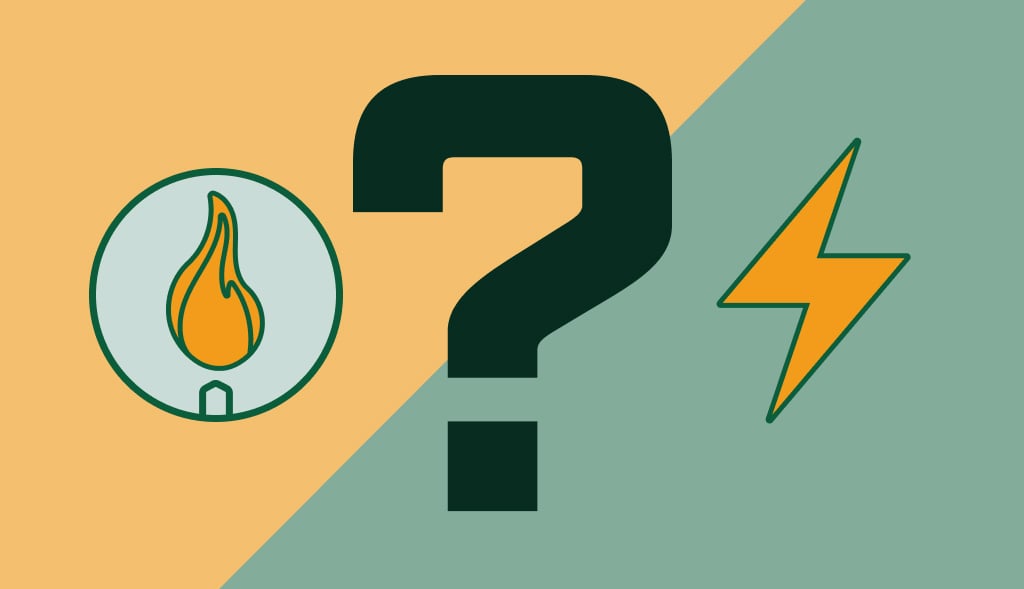How to Tell if Your Water Heater is Gas or Electric?

Knowing whether your hot water heater is gas or electric can be essential, particularly when you need to troubleshoot or schedule maintenance. This guide will help you distinguish between gas and electric water heaters and highlight how a Corro-Protec powered anode rod can enhance the performance of both types.
Identifying a Gas Water Heater
Look for a Natural Gas Supply Line
One of the most apparent indicators of a gas powered water heater is the presence of a gas supply line. This pipe connecting to the bottom of the tank carries the natural gas used to heat the water. Often, this line will have a shut-off valve for safety and maintenance purposes.
Check for a Pilot Light
Gas water heaters require a pilot light to ignite the gas and heat the water. To see the pilot light, you may need to remove the access panel at the bottom of the tank. Inside, if your water heater is gas-powered, you should see a small blue flame — the pilot light.
Identifying an Electric Water Heater
Look for an Electrical Supply Cord
If you have an electric water heater, you will find a supply cord or power cord. This cord is typically attached to the top of the heater and connects to an electrical supply, which is needed to heat the water. Unlike gas water heaters, electric water heaters require no gas supply line or pilot light.
Check the Access Panel
Electric water heaters have one or two access panels on the side of the tank. When you remove the access panel, you will see insulation, and beneath it, the heating elements which electrically heat the water.
The Role of Energy Usage in Identification
Gas vs. Electric Energy Usage
Typically, gas water heaters heat water faster and are more energy-efficient than electric models. However, they tend to have higher upfront costs. If you’ve noticed that your energy usage is significantly lower than your electricity usage, you likely have a gas water heater.
On the other hand, if you see a substantial increase in your electricity bill when you use hot water more frequently, it’s a strong indication that your water heater is electric.
Identifying Other Types of Water Heaters
In addition to standard gas and electric water heaters, there are other types on the market, each with their unique identifying features.
Tankless Water Heaters
Also known as on-demand water heaters, these units don’t store hot water; instead, they heat water as it passes through the unit. You can identify a tankless water heater by its compact size, and because it doesn’t have a large storage tank. Both electric and gas versions are available, so look for a gas line or electric supply cord to determine the energy source.
Solar Water Heaters
Solar water heaters use energy from the sun to heat the water. They are identifiable by the solar panels installed, typically on the roof of your home. These systems also include a storage tank for holding the heated water.
Heat Pump Water Heaters
Heat pump water heaters, also known as hybrid water heaters, use heat from the air or ground to heat the water. These units are typically larger than traditional water heaters and include a heat pump on top of the tank.
Enhancing Other Water Heater Types with Corro-Protec
Just like with traditional water heaters, a Corro-Protec powered anode rod can be beneficial for solar, and heat pump water heaters. By reducing corrosion, the Corro-Protec rod can help to improve the longevity and performance of these units as well, ensuring that your water heater remains efficient and reliable, regardless of its type.
Conclusion
Identifying whether your water heater is gas or electric can be as simple as looking for a gas supply line or electrical supply cord. However, no matter the type of water heater, incorporating a Corro-Protec powered anode rod into your water heater maintenance can improve its performance and longevity. With proper maintenance and care, you can ensure your hot water heater remains efficient and effective for years to come.
Blog
Water Heater Recirculating Pump : Why And How Does It Work?
What is a Hot Water Recirculating Pump and How Does It Benefit Your Home? Every homeowner knows the inconvenience of waiting for hot water to […]
Troubleshooting: Why Your Hot Water Heater Is Not Working
When you want a warm bath or shower but only get cold water, it can be really annoying. If your hot water heater isn’t working, […]

